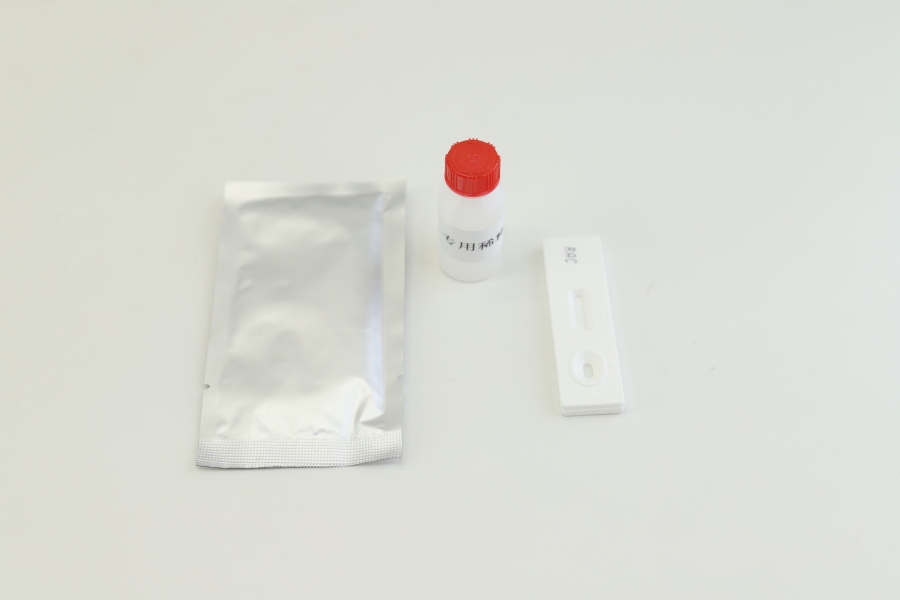Bean sprouts, as a popular vegetable, have always been the focus of consumers' attention on their safety and quality. Among them, some unscrupulous merchants may use plant growth regulator 6-benzylamino adenine (referred to as 6-BA) illegally in pursuit of yield and quality. In order to quickly and accurately screen 6-BA residues in bean sprouts, the 6-benzylamino adenine colloidal gold rapid detection card came into being.
This detection card is a rapid detection product developed based on colloidal gold immunochromatography technology. The core principle is to use the specific binding reaction of antigens and antibodies. When the bean sprouts sample extract is reacted with the detection card, if the sample contains 6-BA, it will bind to the antibody labeled with colloidal gold, preventing it from binding to the antigen of the detection line, so that it will not show color; on the contrary, the detection line will appear clear bands to determine whether it contains 6-BA.
Compared with traditional detection methods, the detection card has significant advantages: the detection speed is fast, and the whole process only takes 10-15 minutes; the operation is simple, no professional equipment and complicated steps are required, and ordinary personnel can get started with simple training; the cost is low, and it is suitable for batch screening; the sensitivity is high, and low concentration residues can be accurately detected.
At present, this kind of detection card is widely used in the self-inspection of bean sprouts production enterprises, rapid screening of agricultural product wholesale markets, daily sampling inspection of regulatory departments and other scenarios, which can effectively curb illegal additions and build the first line of defense for consumer table safety. With the continuous optimization of technology, colloidal gold rapid detection card will play a greater role in the field of food safety detection and protect the public's "safety on the tip of the tongue".


